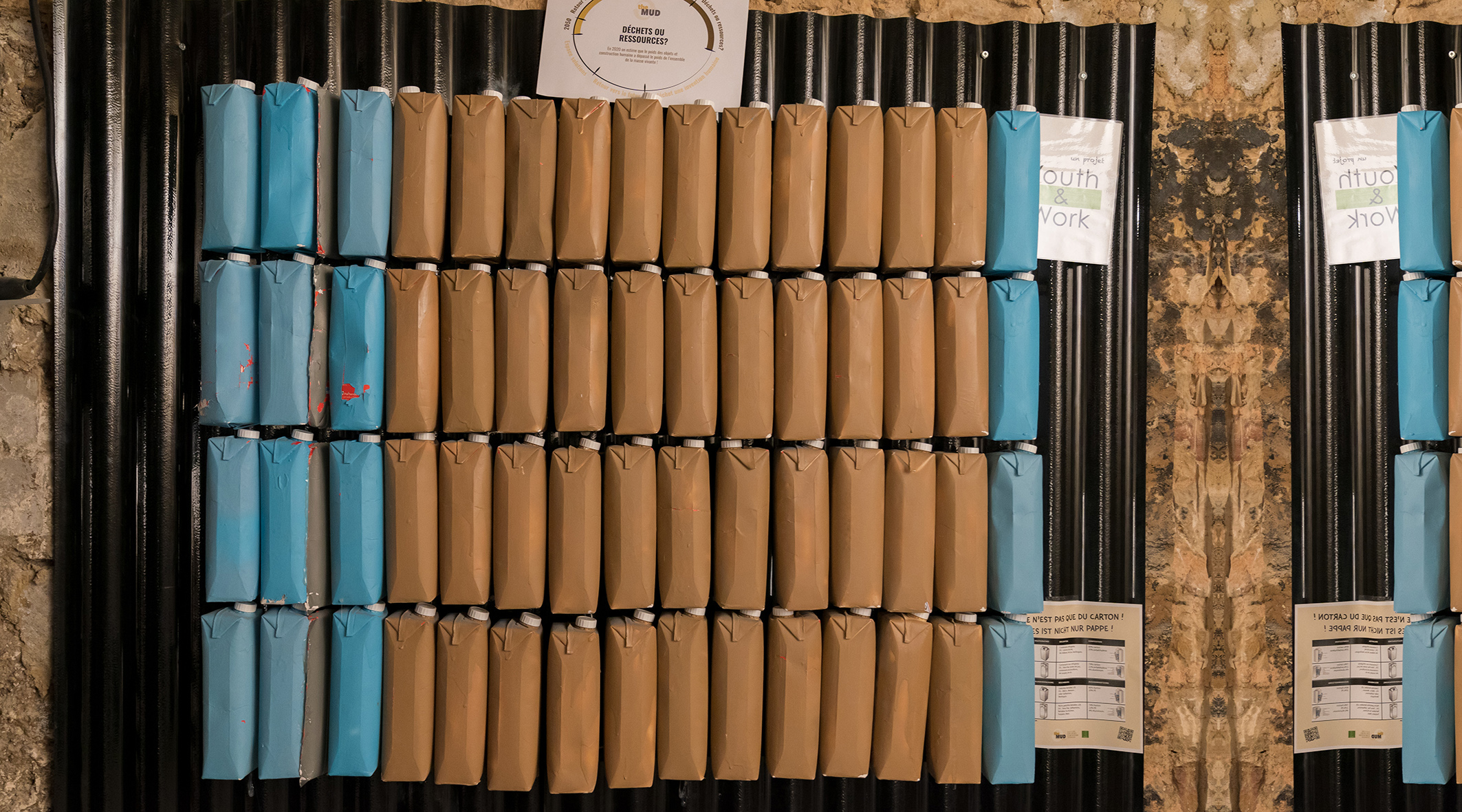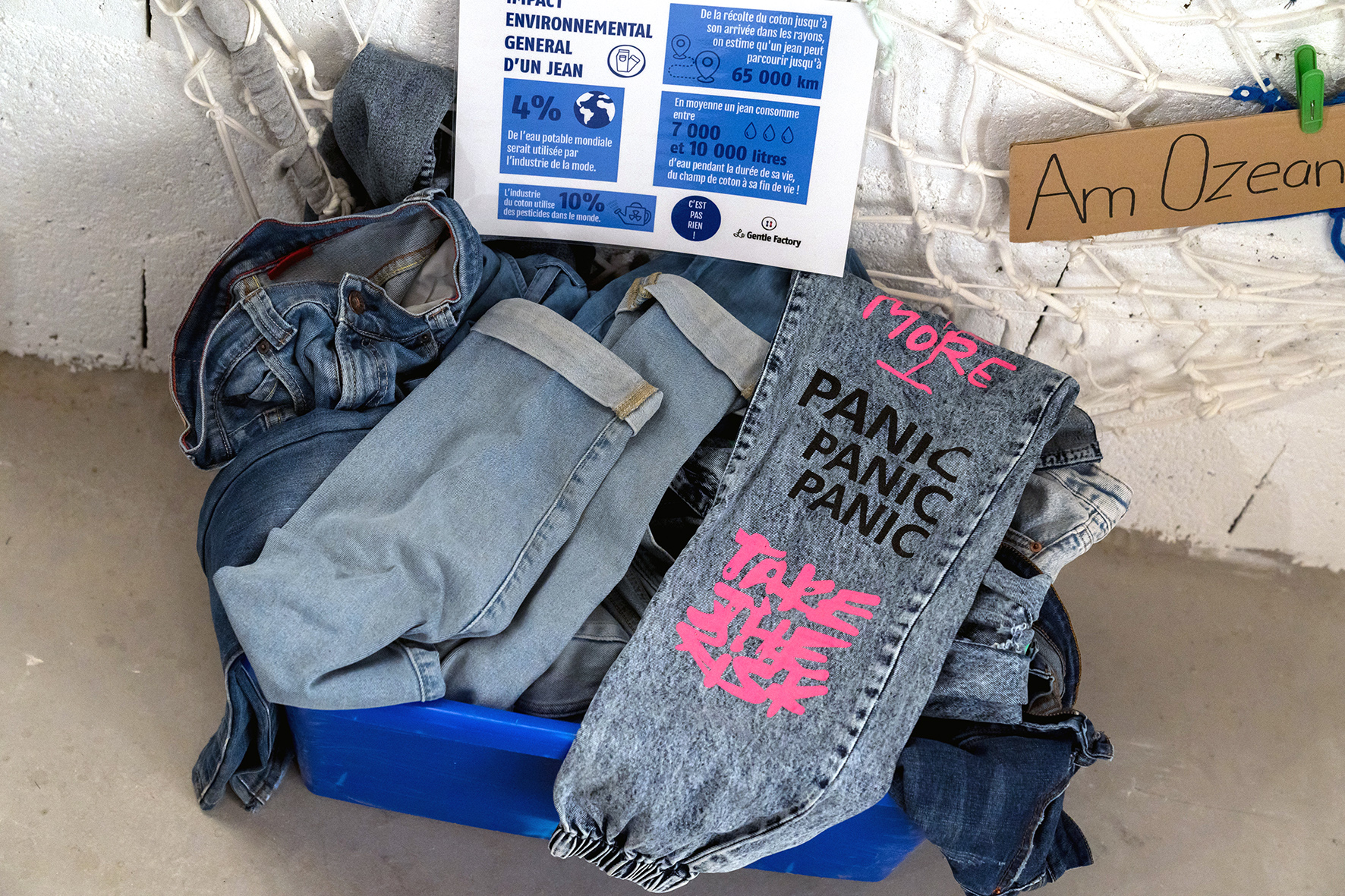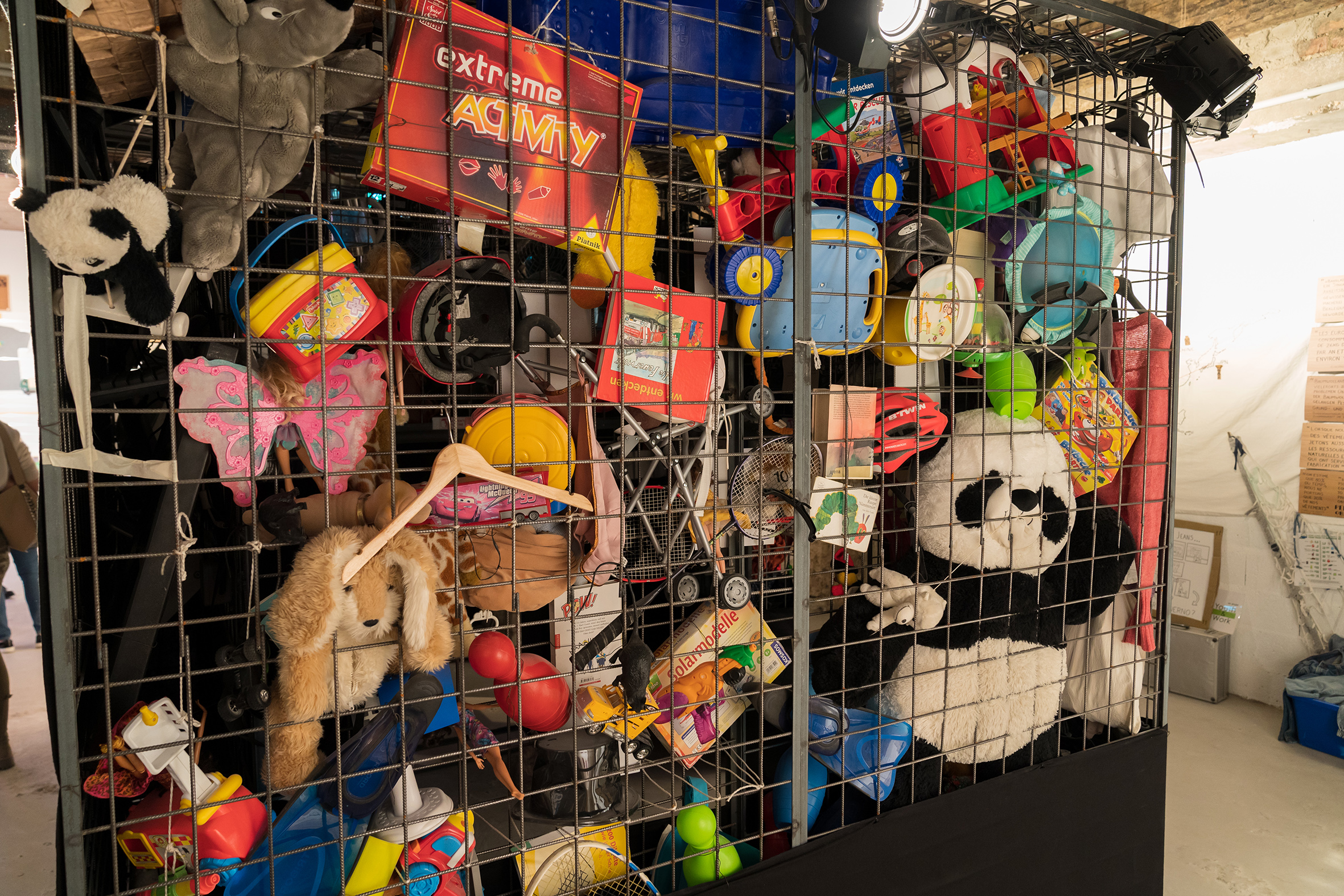The MUD, a Futuristic Museum in Luxembourg
When waste belongs to the past

The MuD is a pop-up museum, open to the general public, with a playful approach. Its first edition was held in the heart of Luxembourg City, and its exhibition is now visible at the Formica center, in Esch-sur-Alzette.
When pushing open the doors of the Museum of Waste, The MuD, the visitor is transported to the middle of the 21st century and is invited to a mental projection exercise: "Imagine, you are in 2050, at a time when waste no longer exists." Very logically, this unusual space bears witness of that crazy time - sadly ours - when we did not know how to design our everyday objects in a circular way or to recover materials after their use!

The idea - unique in the world - is the brainchild of tireless circular economy attorneys Romain Poulles and Jeannot Schroeder of the societal impact company LCCE (Luxembourg Center for Circular Economy). By concretising this innovative and inclusive concept through a partnership with Youth-and-Work, the objective is to show the general public the consequences of our current linear consumption patterns and to exhibit eco-designed and zero-waste alternatives. Textiles, electronics, packaging... the products that fill our garbage cans are deciphered, and we understand that we throw away precious resources on a daily basis. Ivonne Weissflog, head of the museum, explains. "In Luxembourg, each resident generates an average of 197 kg of residual waste per year. For the record, residual waste is non-recyclable waste that is thrown away in the grey garbage can. However, national statistics clearly show that 75% of these 197 kgs are made up of paper, plastic, glass, batteries, clothing and even a lot of organic waste, all of which can be recycled or even composted." This rate is a clear statement.

However, the director of the museum wishes to clarify the philosophy of the place: "The role of the Museum of Waste is not to make people feel guilty but to inform and demonstrate that everyone is part of the solution. Visitors of all ages are guided through a real exhibition covering several themes such as what our waste covers, the quantity of objects we own, the notion of hidden waste, the historical perspective and the solutions, that are within each and everyone's reach. As part of this exhibition, we also offer educational opportunities, awareness-raising workshops for companies and guided tours by reservation."

Welcome to a world where nothing is thrown away. Each product or material used is recognised as a resource.
A necessary narrative to glimpse concrete solutions to the impasse of our waste production. So that in 2050, people will genuinely ask us: "grandma, grandpa, what was the linear economy?"
To be read also in the dossier "The second life of our packaging"



